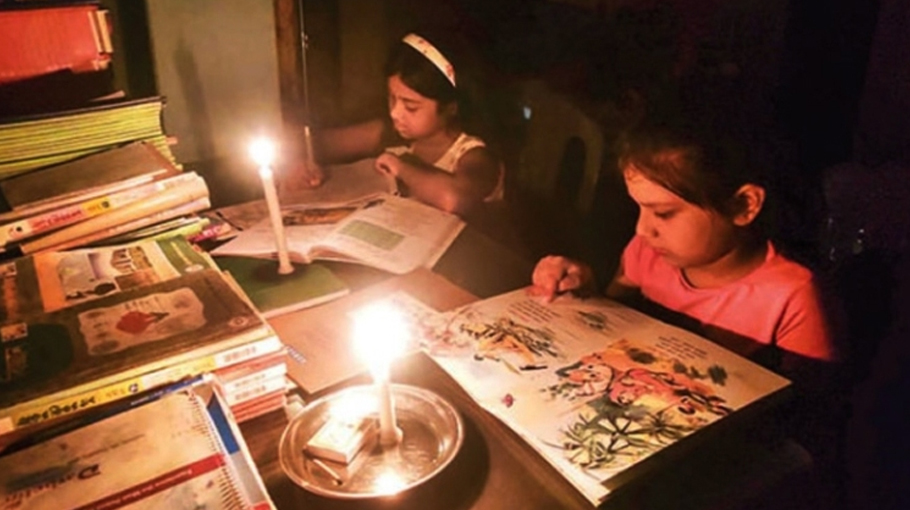Area-wise load-shedding
Good intention goes haywire

Although the authorities announced an organized area wise load shedding of one hour, in reality, people are facing the problem for hours, and several times daily with holidays being no exception.
People are fed up with this unplanned load shedding. Especially children, students, patients and businessmen are facing more problems. Production in the factory is being disrupted. CNG stations are unable to supply gas due to lack of electricity. As a result the authorities are forced to keep their CNG stations closed most of the time during the day.
The government started planned load shedding in the country from July 19 to save energy in order to reduce pressure on foreign exchange. Although there was an hour of load shedding per day, it was not followed in the beginning. There was a shortfall of more than 2000 megawatts of electricity per day. Therefore, there had been load shedding for up to eight hours in some parts of the country. But it came down towards the end of September.
However, over the last few days, the trend of load shedding has increased in various areas across the country including Dhaka city.
In many areas across the country, people are facing six to eight hours of power cuts daily on an average. People’s daily life has become miserable with the ongoing load shedding across the country. Hours-long power cuts are disrupting factory production and increasing costs.
Parents say that students are not able to concentrate on studies due to excessive load shedding. On the other hand, businesses are suffering a lot due to load shedding.
Power distribution companies said their services are also being disrupted as they are not receiving enough electricity from the national grid.
Engineer Bikash Dewan, Managing Director of Dhaka Power Distribution Company (DPDC) told Bangladesh Post, “it is not possible to follow the routine of load shedding due to less supply compared to the demand for electricity. There was a shortfall of around 400 MW of electricity on Thursday as well. Today(Friday) the power shortage is 400 to 450 MW.
As a result, load shedding has to be done multiple times in each feeder (specific customer area).
Dhaka Electric Supply Company (DESCO) is another power distribution company in Dhaka. An official of DESCO said that they are getting 200 to 250 MW of electricity less supply than the demand. As a result, load shedding cannot be done as per the schedule.
According to Bangladesh Power Development Board (BPDB), the demand for electricity in summer is increasing every day. In this situation, 10 diesel-based power plants with a capacity of 1,290 megawatts had closed to save the cost of foreign currency. Import of liquefied natural gas (LNG) from the spot market has also been stopped due to increase in price in the international market. As a result, electricity generation has decreased by more than two thousand megawatts.
Earlier, State Minister for Power, Energy and Mineral Resources Nasrul Hamid said “this situation is temporary. We are looking for fuel at a low price in the international market.”
The Bangladesh Rural Electrification Board (BREB) allegedly cut power supply without any prior announcement, they reported. In such a situation, the unorganised load shedding disrupts people's normal life and business activities. Older people and infants are falling sick because of the sweltering heat.
The country's largest power distribution company Bangladesh Rural Electrification Board (REB) has been hit the hardest. They have to do load shedding for hours in many areas. Customers outside Dhaka are suffering more.
BREB supplies about 55 percent of the country's electricity. However, BREB has been getting less electricity for several days. The organisation has about 32.5 million (3.25 crore) out of 42.5 million (4.25 crore) subscribers enjoying electricity and they distribute electricity through 80 Palli Bidyut Samities.
A responsible officer of BREB said that they are getting around 1,500 MW less than the demand. There has to be load shedding for several hours.
According to BPDB, power plant bills in arrears in the private sector have exceeded Tk 16,000 crore. As a result, some of the oil-based power plant owners are shutting down generation. And due to lack of gas, more than half of the generation capacity remains idle all the time. As a result the load shedding is increasing.



